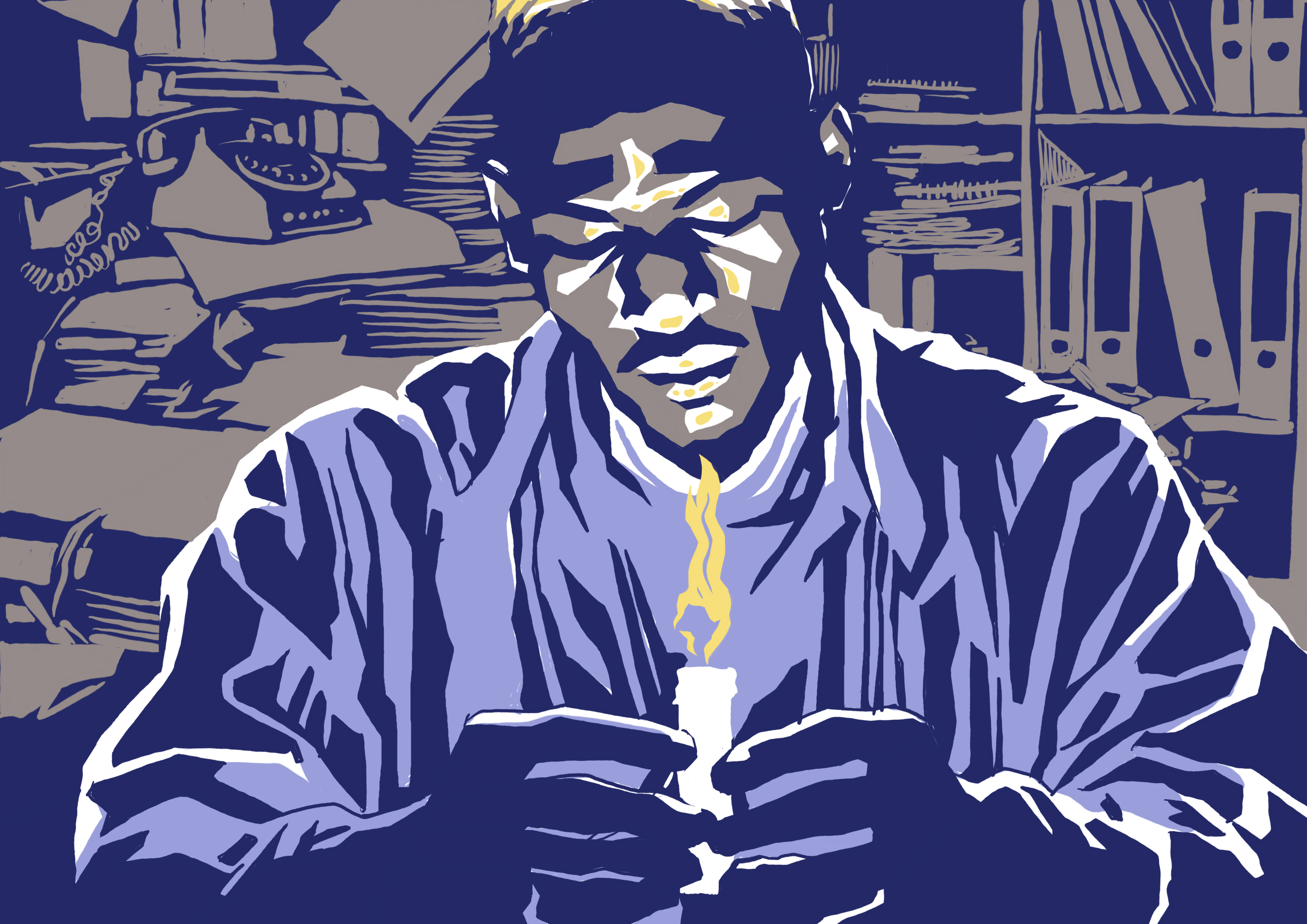In front of a teeming crowd at the family medicine department of the Lagos State University Teaching Hospital in Nigeria, a young nurse bravely tries to sort out piles of patient files for the day. She does not get very far: besides the myriad patients in line to get tags for medical attention, doctors are also on strike, meaning that even those with tags may have to go home unattended. The enormity of the workload is apparent in the family medicine records office, where thousands of files are stashed on shelves. The only way to match patients to the paperwork, an admin worker explains, is to check paper cards that move with ailing patients from one clinic to another, while – when all goes well – the files are moved correctly and manually by hospital staff.
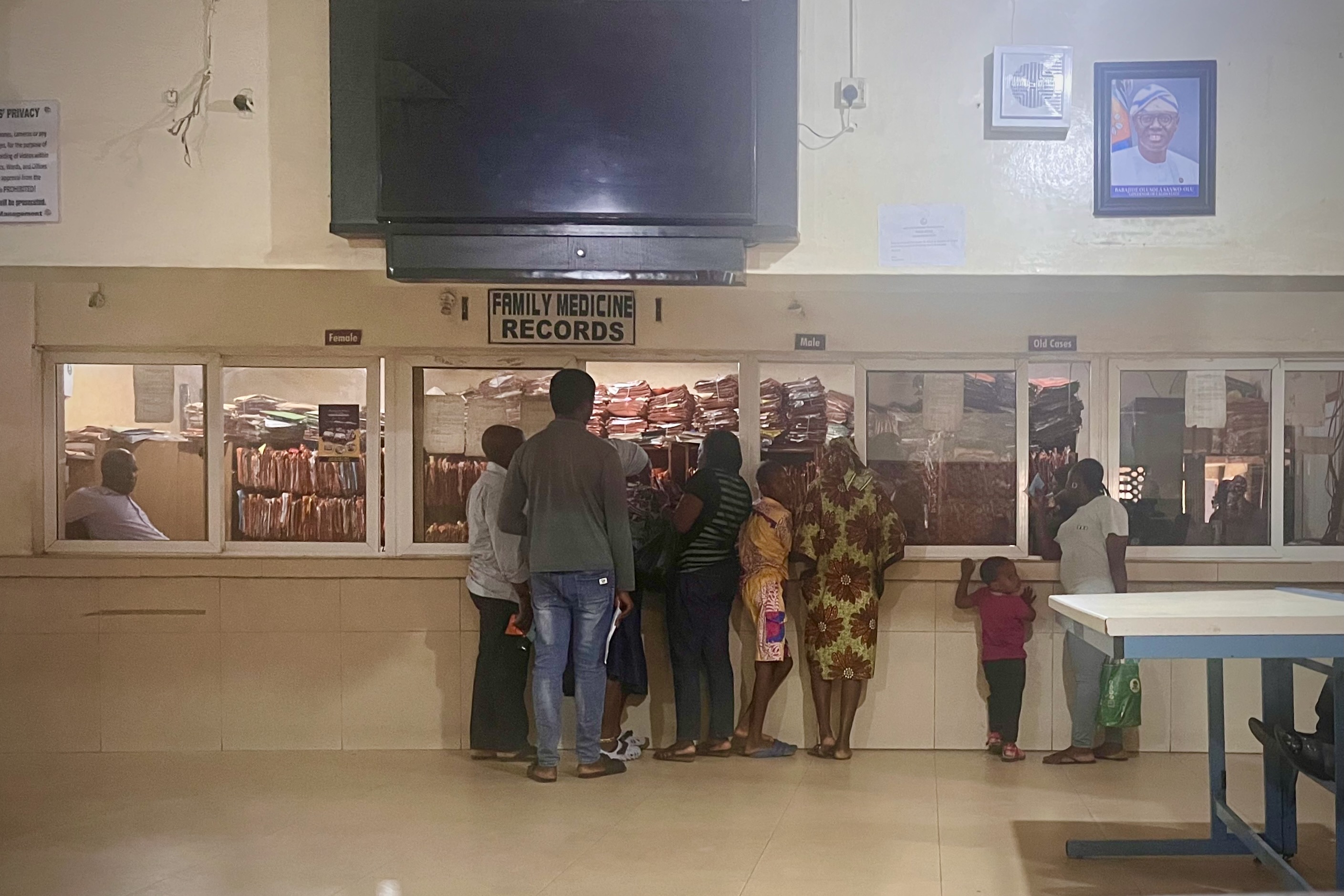
And there are just too many paper cards and files.
The fundamental problems in Nigeria’s underfunded and understaffed health sector, aggravated by a medical brain drain plus an overflow to academic hospitals of patients who don’t find their needs met at primary health care facilities, probably need national budgetary and governance solutions. But, even in a hellscape of mismanaged bureaucracy and shortages, individuals manage to make a difference.
This was the case in the Federal Medical Centre Ebute-Metta in Lagos State.
The leaky roofs inspired little trust
The former railway workers’ hospital, located at the entrance of the Lagos state railway station in Nigeria, used to look unimpressive, to say the least. Its leaky roofs, inadequate bed capacity, and scarcity of equipment and medical supplies inspired little trust among patients who often had no choice but to try their luck at the facility. For many, their only hope was to move to the front of the queue to receive what little help there was, in exchange for bribes – while staff, not satisfied with meagre salaries, would also pilfer supplies to their hearts’ content.
Building
Five dollars
Despite Nigeria being a signatory to the Abuja Declaration since 2001, when African countries pledged to spend at least 15% of their annual budget to improve the health sector, it still only allocates between 5% and 6% to healthcare, with the budget often underspent, due to dwindling national revenue. According to a 2021 analysis, the national budget in that year spent less than US$5 on healthcare per citizen. With virtually all public facilities severely underfunded, there is no such thing a free treatment or medication in Nigeria: all these must be paid for out of pocket by the patient. There is also no food budget allocated to hospitals: patients’ relatives are expected to bring them their meals.
But change came in July 2017, when a new chief medical director was appointed. Dr Adedamola Dada was not only a consultant orthopedic and trauma surgeon, but also an experienced hands-on manager with a passion for human capital development, staff motivation, and practical and transparent financial and infrastructural design. A strategic plan during the first few years of his leadership centered around “building human beings, building the structures, and building the process in the workforce,” he says. “It’s a system thing.”
From 2019, the hospital began introducing an electronic medical record system which was designed to keep all patients’ data, treatment procedures and financial transactions in one place, eliminating the need for repeat introductions and laborious record keeping. The system also blocked loopholes that could be used by staff to ask for bribes. It furthermore empowered patients to check on their next appointments, as well as their past procedures and their payment status. Those who could, now did the payments from their phones; those without access to internet were assisted by staff. After cash payments were largely eliminated, and accountability checks and transparency were built in, thereby reducing corruption and pilfering, the hospital’s revenue increased significantly.
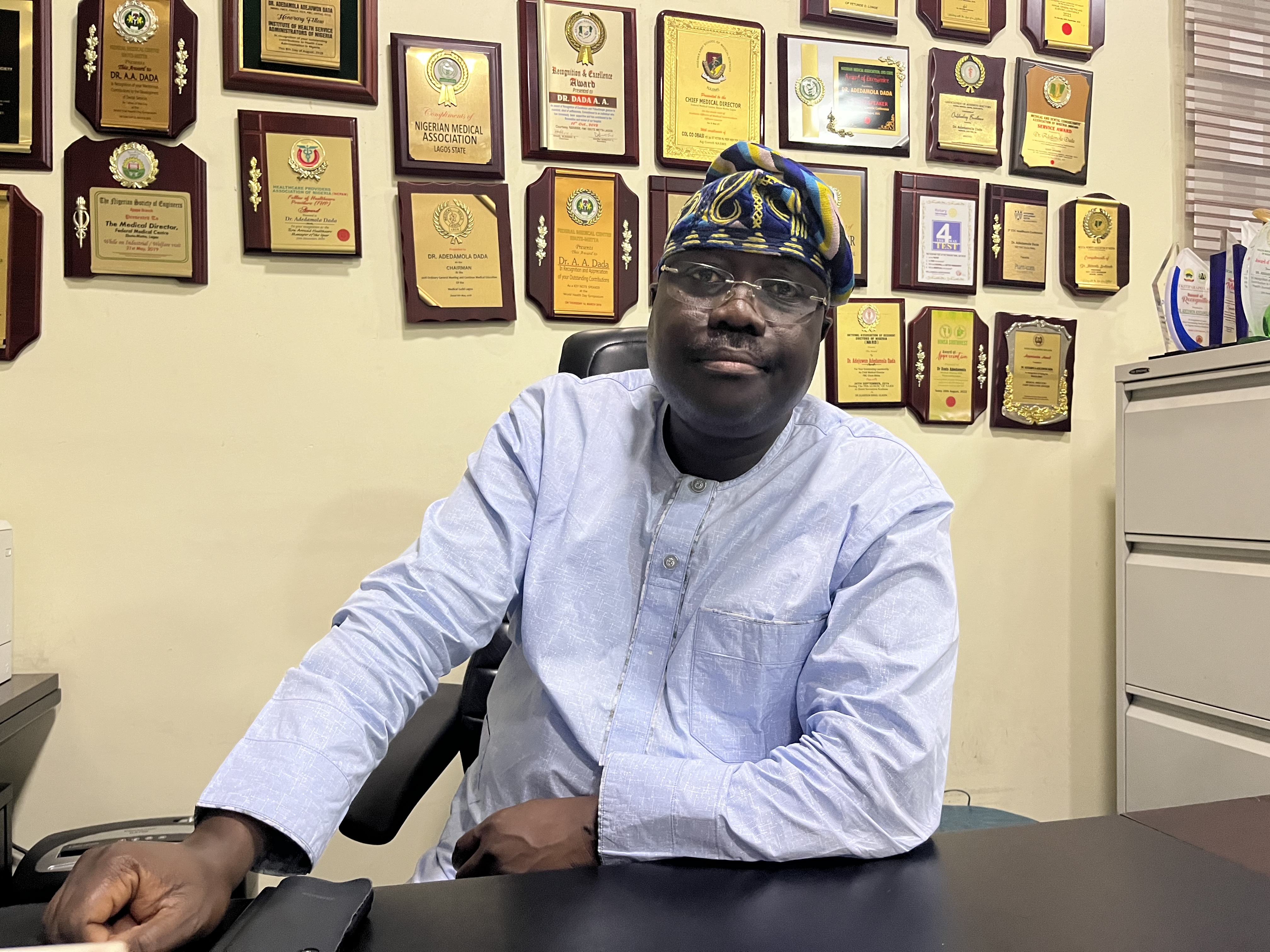
The service cemented buy-in from influential people
Simultaneously, a second pillar for more funding was put in place through the introduction of a public-private partnership (PPP) that allowed for extra services to private patients who either have better insurance or can pay more out of pocket themselves. This service, insiders say, has cemented buy-in from influential people who now also use the facility: a significant boon in a state plagued with corruption, where favour often means the difference between abandonment and functionality.
As a result of more transparent and accountable financial management on the one hand, and more income on the other, “our revenue tripled and we began to fix the wards, pipes, roofs, beds, and equip the laboratories, one after the other. We started getting new furniture and rebuilding the structures,” says the hospital’s head of corporate communications, Olorunfemi Ayoola. As I move around FMC Abute-Metta, I can see that building is still going on, even today. On one end, wards are being constructed for an extra 50 beds, bringing the total up to 450 from only 75 in 2015; on another, two new surgical operating theatres will result in a total of ten, when there were but three six years ago; in the parking, there are three new electric ambulances.
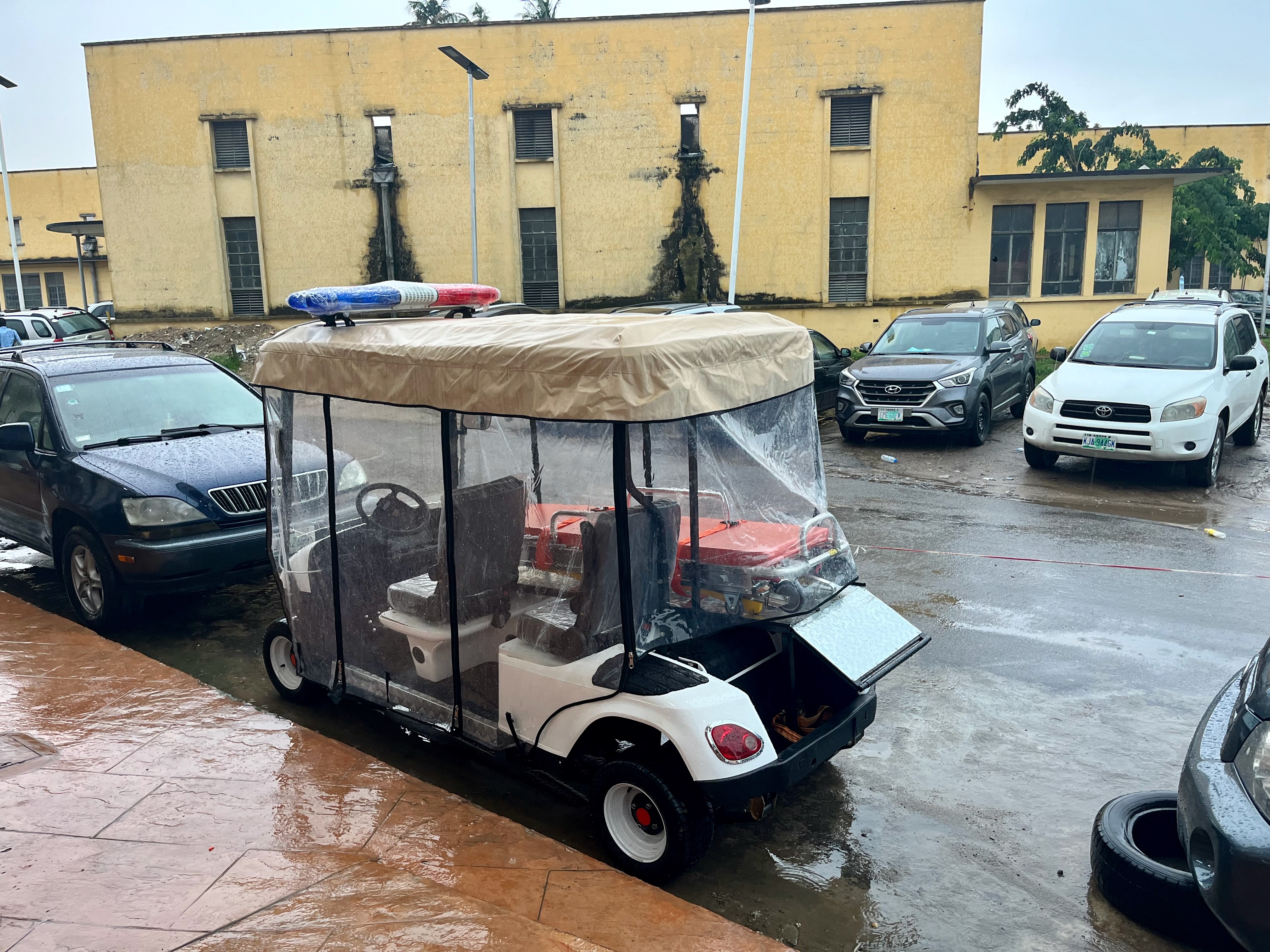
A five-fold increase
It’s not just beds and spaces: every single bed, for example, is now equipped with oxygen, supplied by the hospital itself. “Six years ago, we had an oxygen plant that was producing (only) 20 cylinders per day and was often epileptic (dysfunctional),” says chief medical director Dada. “Today, we are the largest oxygen producer in Lagos, with two big plants, supplying every single bed in the hospital.” Dr Dada is also proud of the patient monitoring system, which streams each patient’s bed-attached monitor “directly to the nurses, so that they can readily pick up if anything goes wrong.” He recalls, once again, the situation six years ago, when there was only one single monitor in the hospital. “And we only had one non-functional Intensive Care Unit (ICU). Today we have a full, 16-bedded ICU.”
No wonder then that FMC Ebute-Metta’s active patients’ register of about 32,000 in 2017 has increased to about 149,000 as of May 2023.
Randomly interviewed patients at FMC Ebute-Metta professed to be happy with the facility, sometimes indicating that they even came from far away to receive treatment here. Smart Ogbe, a resident of Lagos Island accompanying his mother for help at the (also newly commissioned) accident and emergency wing, says the family started utilizing the facility even though it is a “long distance” from the hospital in their area. “It’s just that I never met a queue here. And I don’t have to move around with my mum. With our cards, we easily get the things we need and go back home. And nobody is making unnecessary financial demands before we see doctors, which was the exact reason we left our former hospital.” Another patient, who gives his surname as Adebayo, and says he is an accountant, adds that “the hospital has become a sort of attraction to people who crave due process in public facilities.”
The due process has not only facilitated faster, more efficient and transparent administration of payment for treatment and salaries for staff, but also accountably governs the orders for supply and even maintenance, a rare occurrence in Nigeria’s hospitals where much is dilapidated and in need of repair or replacement. “The quality of equipment (here) has given the patients more confidence in (our) operations,” says medic Cornelius Chuks, who is in charge of a high-capacity autoclave (sterilization) machine.
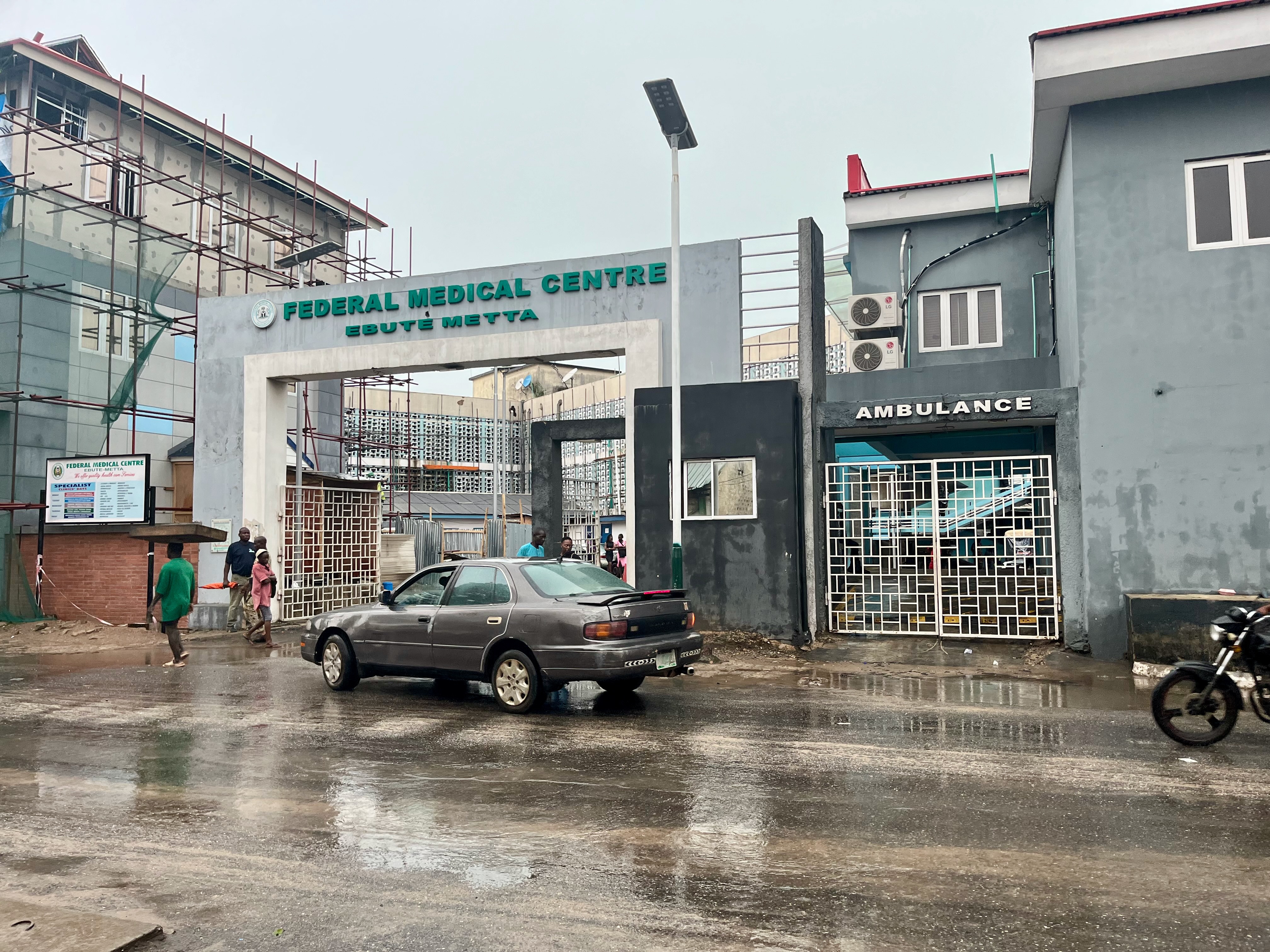
Diesel drains
Poor electricity supply from the Nigerian national grid is still a major challenge to the hospital. FMC Ebute-Metta’s solar energy installation does not provide enough power to compensate for the frequent blackouts, and the hospital is forced to use generators to keep its equipment running, using over 45,000 litres of diesel monthly. The major financial drain cannot be mitigated: “In the ICU, patients’ lives depend on 24-hour electricity,” the chief medical director says.
Role model
FMC Ebute-Metta has become somewhat of a role model to other public healthcare centres across the country, and delegations from such facilities, Dr Dada says, are thronging to the hospital to study its model. “In the last six years we have received over 45 visits from different hospitals from all over this country, and 32 hospitals all over this country have adopted our processes,” he says. While the automated system has made some administrative officials redundant, many of these, Dada says, have found new positions in the research, education and training, and the quality improvement departments.
The hospital team’s ultimate goal is to provide a service in Nigeria that is comparable to those (often Western) countries where Nigeria’s rich, shunning the health services provided at home, now tend to go for treatment. In 2022, then minister of information and culture, Lai Mohammed, stated that about US$1,6 billion is spent annually by Nigerian citizens on “medical tourism” elsewhere, and that it would be better if the country would establish world-class healthcare facilities at home. Not only would the money stay in Nigeria, he said, but it would also solve the brain drain currently bedeviling the health sector.
This is the FMC Ebute-Metta dream, says Dada, who harbours even more daring plans for improvement of his hospital. “We are now going into cancer care. We have done our calculations and we are confident we can crash the cost of (this treatment). The same thing with In Vitro Fertilization (IVF), another treatment that quite a number of people now fly abroad for. We are going to bring down that cost too.” A third service the hospital is working on is laparoscopic surgeries, now only done by a few select private hospitals. “We have acquired the equipment and we have the personnel. We also want to become a centre where we can train people to send to other institutions.”
The system shines a spotlight on any irregularities
Asked if the introduction of the management processes and their automation did not meet with resistance from those who were benefiting from chaos and corruption, Dr Dada indicates that the hospital is winning this struggle. “There is no way staff can tamper with the digital system, since it is handled by a strong ICT team and general staff don’t have access. Of course, as you are developing the antidote, those who practice (corruption) also develop more skills. But they can't breach the system and when they then try to use other means, it's easy to catch them.” For example, paying suppliers on time and therefore getting the required medicines and consumables also on time, will shine a spotlight on any irregularities. But in the end, “I don't really want to catch anybody stealing. I want to prevent it. We have also improved the welfare of the staff to ensure they are not tempted to steal, and we embark on regular training.”
While the same low salary levels as elsewhere in the country, combined with the demand from abroad, will tempt medics from FMC Ebute-Metta to join the all-pervasive Nigerian brain drain, the management has adopted a proactive policy to counter this threat, employing a new doctor as soon as one leaves. It also hopes, says communications head Olorunfemi Ayoola, that the smooth working environment reduces the frustration many Nigerian doctors have stated as a motive for exiting the country.
But Dr Dada is to retire in 2025. Will FMC Ebute-Metta not revert to the old corrupt ways? He thinks not. “We now have a formidable workforce. It's going to be tough for anyone to come and say he wants to cancel the electronic medical record, for example, because it will mean you are cancelling the hospital. To cancel the culture of quality that we have here, you would have to take all the staff away, because some staff in this hospital don't even know any other way.” Even a new director will find his or her way, because he will find a functional system already in place, Dr Dada adds. “The structure will support the person, provided they have a genuine intention. It's not a one man show. It's a system thing, a collective mission.”
Read all the investigative articles in this series:
Public Servants | Kenya, Uganda, Nigeria, Ghana, Malawi
Malawi | A Reduction In Deaths
Ghana | The Manager Who “Needed His Head Examined”
Uganda | A President’s Promise
Kenya | The Shiny Red Rescue Trucks That Could

